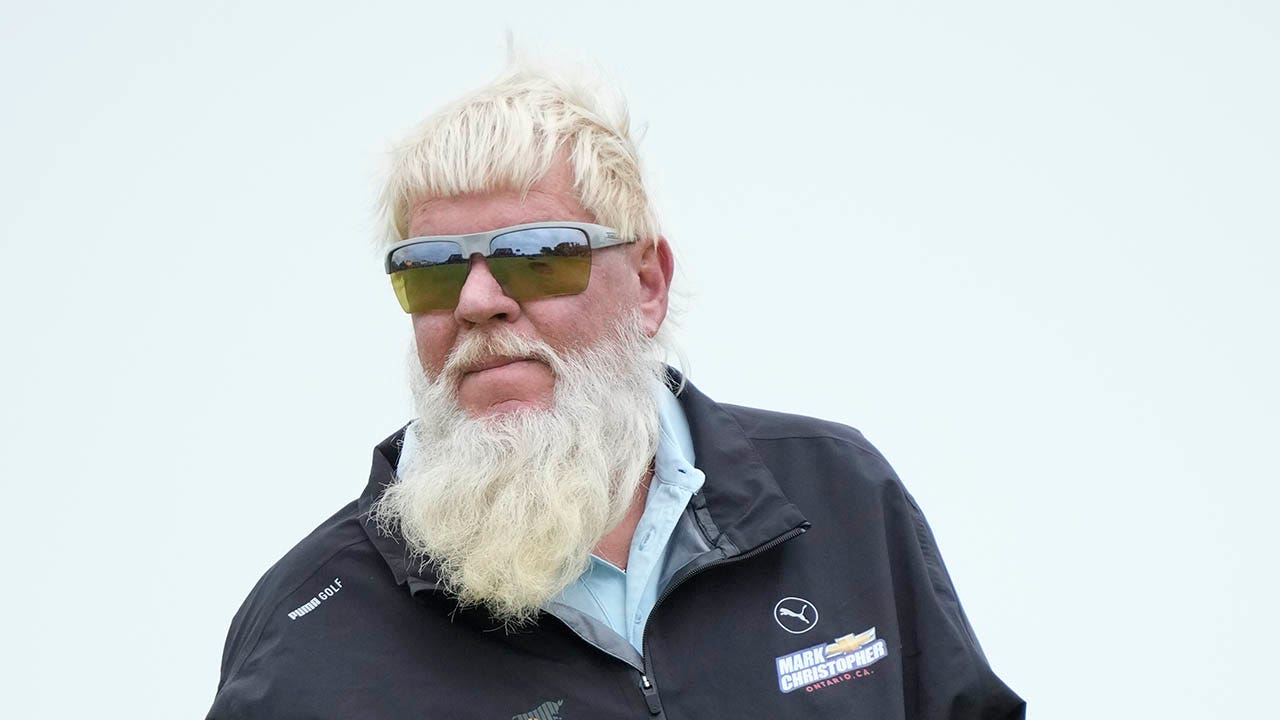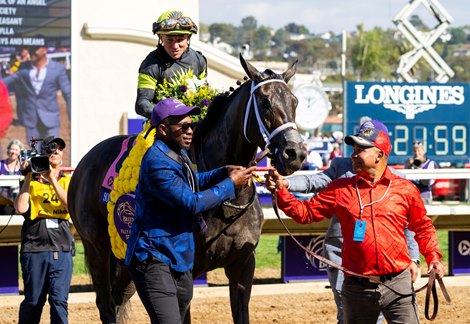Phil Mickelson addresses LIV TV ‘negotiations’ as CW rights dwindle

Phil Mickelson addressed LIV Golf’s TV future.
Getty Images
Welcome back to another extended edition of the Hot Mic Newsletter, GOLF’s weekly send covering all things golf media from me, James Colgan. The topic of this week’s newsletter is Phil Mickelson’s comments about LIV’s TV rights negotiations. As always, if you’d like to be the first to receive exclusive insights like these directly from me, click the link here to subscribe to our free newsletter send. But first, we go back to Troon, where something is … brewing.
After two short years and a few too many bleak ratings reports, LIV Golf and the CW are preparing to change the channel.
That’s the latest according to LIV star Phil Mickelson, who let slip during a press conference previewing the league’s championship in Chicago that the league has its sights set in a new broadcast direction for 2025 and beyond.
“Well, television and viewership for sports, especially golf, is changing. So the old-school media and way that we’ve done it, which is be on a network and so forth, is not the way of the future. It’s going to be more digital, more streaming,” Mickelson said on Wednesday, speaking about the league’s current agreement with network TV partner the CW. “Our new partner, because our new partner, whoever that is after this year, I think is going to be more focused and centric there because of the opportunities that will open up. But I am not part of those television contracts.”
Sources at LIV confirmed the league is “exploring partnership opportunities” with current and new broadcast partners in the U.S. and abroad, as it has done in each of the last several offseasons.
Mickelson, though, indicated the league could look to move away from linear TV rights altogether. That would be, to put it lightly, a radical shift in the modern sports media economy.
“I know they’re in the middle of negotiating viewership relationships and partnerships going for next year,” Mickelson said. “I’m not a part of that, so I don’t really have any great insight for you. I just know that the old-school model is not where LIV Golf is headed. It’s not where the future is going, and we don’t want to get stuck in a rut.”
THE BASICS
LIV owns the rights to its broadcasts. It can sell those rights to whomever it chooses, and typically it will seek a “rights fee” in return. A rights fee can range from a few million to a few billion dollars per year, depending upon the size and reliability of your audience, the size and interest of your advertisers, and your total number of hours on the air.
LIV is currently partnered with the CW, though that deal initially included a revenue share instead of a rights fee. It is expected to expire at the end of the 2024 season. Until Mickelson’s comments earlier this week, nobody from LIV had commented publicly about the league’s broadcast rights heading into the future.
THE BACKSTORY
LIV and the CW inked a media rights agreement in early 2023 after a lengthy negotiation period that failed to yield the league a sports media partner with a track record in sports. At the time, the agreement was seen as a bridge deal for both sides: a chance for LIV to show off its ad-generating chops after a season of broadcasting on YouTube to the “big fish” of sports TV, and an opportunity for a transitioning network like the CW to enter the sports space with a big splash. The deal was widely reported as a two-year tryout, but it’s unknown if the contract included escalators in term or value based on the league’s performance, as some other sports rights agreements do.
The two seasons that followed were trying for both LIV and the network, a period highlighted by ghastly TV ratings and curious squabbles with the CW’s programming department over the network’s decision to pivot away from LIV telecasts. Editorially, LIV’s telecasts have looked just fine (the league controls TV production), but both sides’ perceived weaknesses in establishing and retaining a sports audience have come to fruition. Recent telecasts have been watched by fewer than 200,000 average viewers, according to Nielsen, more in line with cable news than broadcast sports television.
THE LANDSCAPE
The sports-media rights landscape changes every 15 minutes, but it has undergone two tectonic shifts since LIV signed its agreement with the CW. Those shifts were the historic NFL and NBA rights deals, which promised leagues close to $200 billion from rights-holders over the next decade. The agreements fortified the sports TV landscape in the long-term along clear lines: ESPN, NBC and Amazon have rights to both major leagues; big-time players like Netflix, CBS, YouTubeTV and Fox have rights to one of the leagues; and others like Warner Bros. Discovery and Apple, have the rights to neither.
Notably, that list of rights-holders now includes both networks and streamers for the first time, a long-rumored shift to further the transition from cable to streaming. At the same time, new sports streamers like Venu — a joint venture from Fox, Disney and Warner Bros. Discovery — have entered the fray hoping to pick off pieces of the sports rights business.
For LIV, competitive change holds considerable weight. The number of sharks willing to gobble up LIV’s rights has increased, and the sharks who didn’t join the feeding frenzy for NBA/NFL rights are ravenous for new sports entities.
LIV could reenter the market hoping to succeed where it failed back in ’23, hoping to pick off one of the losers of the NFL/NBA rights for a modest increase in rights fees and access to a slightly more devoted sports audience. The league could also take the approach, as Phil suggested, of searching for a streaming-first partner. A streaming-only (or streaming-dominant) agreement could pick off a (comparatively) big rights fee over the league’s CW deal, and would further target the league toward its intended younger audience.
THE PROBLEM
LIV needs to show any semblance of a profitable business structure before it can land a deal worth considerable money from a streamer or broadcast network. It has managed to grab big stars and a few new sponsors, but without a reliable audience and the robust advertising structure an audience creates, it’s hard to see any broadcast partner (streamer or otherwise) lining up to sign a big-money deal. Another smaller, revenue-sharing deal might be more reasonable, but the league would clearly prefer to receive a rights fee for its broadcasts.
As for who might be interested, Mickelson’s suggestion that linear TV is old news is only half-true. The big money in sports TV is still in linear, which is why both the NFL and NBA lined up to sign massive, long-term deals with linear broadcast partners. There might be money and a big future in sports streaming, but we’re still distant from the tipping point that Mickelson suggested has already happened. If LIV were to sign with a streaming-only entity, both sides would be taking a big risk.
THAT SAID…
Streaming does seem to be a much more reasonable fit for LIV’s broadcast ethos. LIV is obsessed with delivering a new audience for golf, and it’s clear that group hasn’t followed to the CW. In this batch of rights negotiations, landing a partner who can bring the league to a legitimate audience of sports fans might be the most valuable sticking point.
And if that includes a rights fee, too? Well, that’s just gravy.
You can reach the author at james.colgan@golf.com.
Related
Arnold Palmer Invitational Best Bets and Golf Odds
Arnold Palmer Invitational Best Bets and Golf Odds: Joe Highsmith accomplished something that had not been done in nine years — make the weekend cut on th
TGL leaderboard: Live updates, TV channel for Tiger Woods’ golf…
Tiger Woods, Jupiter Links talk about 'embarrassing' TGL wedge shot"That was one of the most embarrassing things to ever happen. I can't believe that just happe
Golf legend John Daly reveals bloody truth about bladder cancer…
Golf legend John Daly revealed his bladder cancer has been in remission for four years. Daly, 58, talked about finding out he had cancer in a recent podcast a















